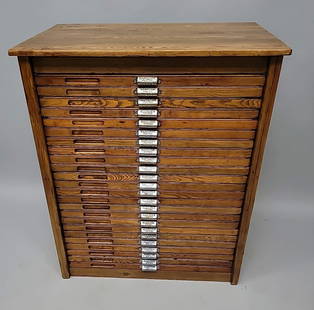

 Discovery- InteriorsBonhamsSponsored.Your ad here?
Discovery- InteriorsBonhamsSponsored.Your ad here?



Discovery- Interiors
Bonhams
Sponsored.Your ad here?


 Discovery- InteriorsBonhamsSponsored.Your ad here?
Discovery- InteriorsBonhamsSponsored.Your ad here?



Discovery- Interiors
Bonhams
Sponsored.Your ad here?

African Ibeji Wooden Twins - Original Glass Beads
Similar Sale History
View More Items in ArtRelated Art
More Items in Art
View More







Item Details
Description
West Africa, Yoruba culture, Ibeji, ca. early 20th century. A matched pair of deceased male and female twin figures, known as Ibeji, most likely come from Osogbo or the Igbomina region of Yoruba land, carved from an inherently beautiful wood with natural, striated ring marks, showing strong detailing particularly in their elaborate coiffures, the scarification marks and expressive facial features on their visages, the zigzag motif adorning their integrated bases, the metal pupils/irises of their bulging circular eyes, generous red pigment remains on lower bodies, and many strands of colorful glass beads of various shapes decorating the male figure's arms, waist, and neck and the female's arms, waist, and feet. The Yoruba have one of the highest number of twin births in the world, four times higher than in Europe, for example. Ibeji are known to the Yoruba as two people who share one soul. If one of the human twins dies, whether as a child or an adult, the surviving human twin is considered to have little hope of living with only half a soul. Further, the deceased's soul must have a place to reside. Wooden figures, like this pair, keep the souls of the twins together. When a matched pair of twins is made, it is an indication that both human twins have died. This pair shows darkened, worn, and smooth surfaces which convey the devotion and respect to the Ibeji spirit. "Ultimately, the surface of an Ibeji measures the object's spiritual value to the caregiver. The response of the Yoruba mothers and caregivers is primarily personal and spiritual, not aesthetic. Even an Ibeji carved by a mediocre artisan can develop a surface reflecting great efficacy to the believer. The wood is worked, fed, oiled, and clothed not so much to fulfill an aesthetic ideal but to fulfill a human need "....taken from 'Ibeji Surface Analysis' by Charles Bordogna, in 'Surfaces' ed. Kahan, Page, Imperato, 2009 by Indiana Univ. Press. Thus, the Yoruba have traditionally had a high rate of multiple births and have always valued twins as special. When a twin dies, a figure dedicated to Ibeji, the deity of twins, is carved to be the earthly abode of the spirit of that twin. The figure is then nurtured by the mother and/or the surviving twin. In this case, we have a matching male/female pair of twins. It bears repeating that one should take note of the painstaking attention to details, from their elaborately carved coiffures (the female's styled with an openwork design) to the scarification marks on their faces (as well as the abdominal region of the female), not to mention the stunning Yoruba glass beadwork adorning the figures' bodies. Beads were a sign of status and wealth among the Yoruba. A very special pair, quite old and well cared for! Size: male measures 9.375" H (23.8 cm)
Provenance: Ex - Adeon Gallery, Nick Poolos collection acquired before 1975.
All items legal to buy/sell under U.S. Statute covering cultural patrimony Code 2600, CHAPTER 14, and are guaranteed to be as described or your money back.
A Certificate of Authenticity will accompany all winning bids.
We ship worldwide and handle all shipping in-house for your convenience.
#115549
Provenance: Ex - Adeon Gallery, Nick Poolos collection acquired before 1975.
All items legal to buy/sell under U.S. Statute covering cultural patrimony Code 2600, CHAPTER 14, and are guaranteed to be as described or your money back.
A Certificate of Authenticity will accompany all winning bids.
We ship worldwide and handle all shipping in-house for your convenience.
#115549
Condition
Intact and fabulous. Both show beautiful patina commensurate with age and handling.
Buyer's Premium
- 22.5%
African Ibeji Wooden Twins - Original Glass Beads
Estimate $900 - $1,200
2 bidders are watching this item.
Shipping & Pickup Options
Item located in Boulder County, CO, usSee Policy for Shipping
Payment

Related Searches
TOP































































